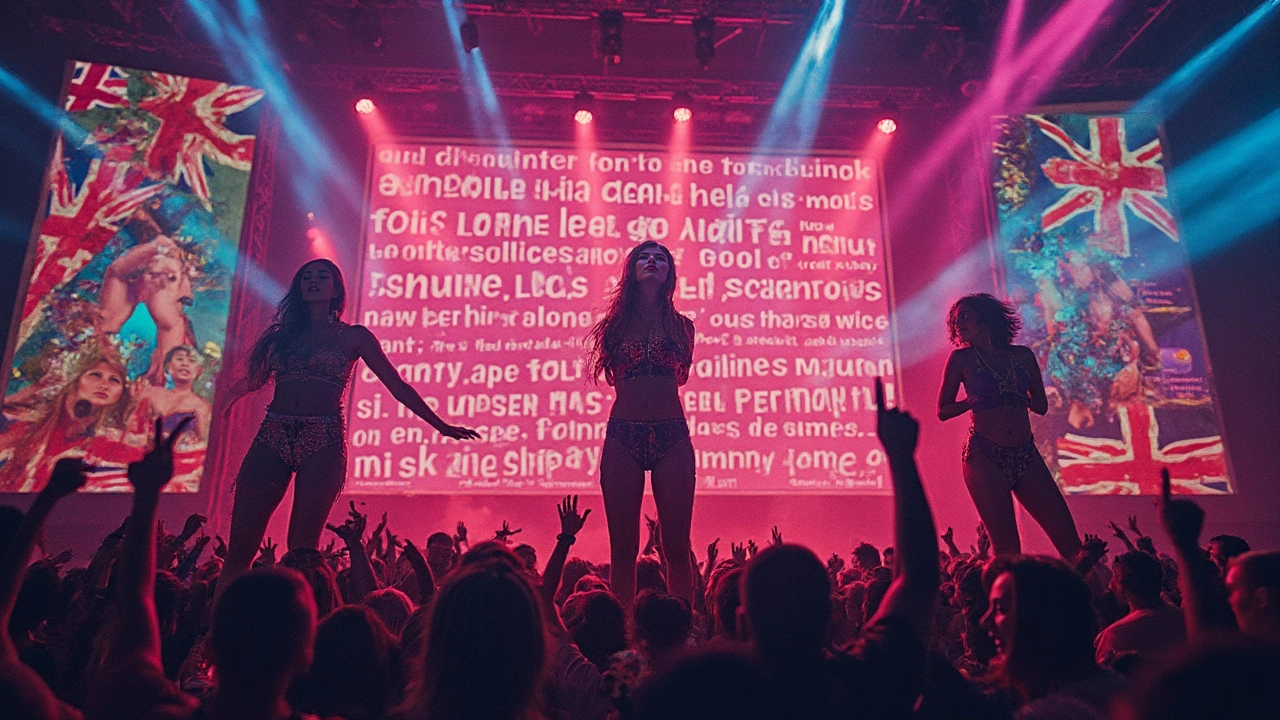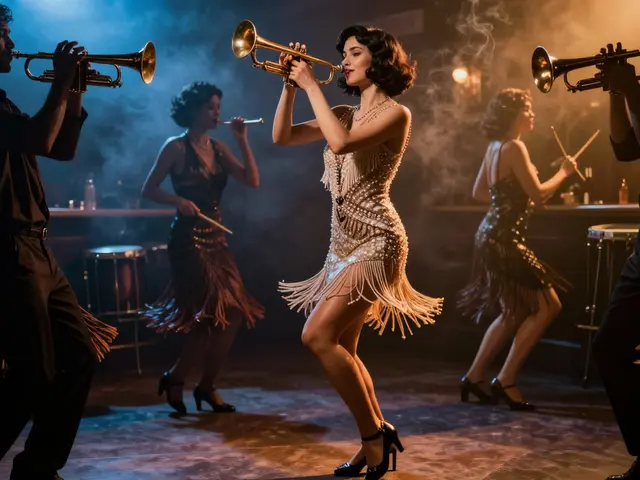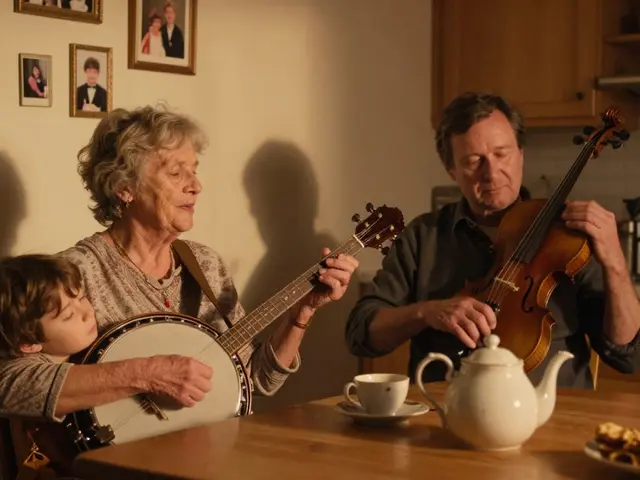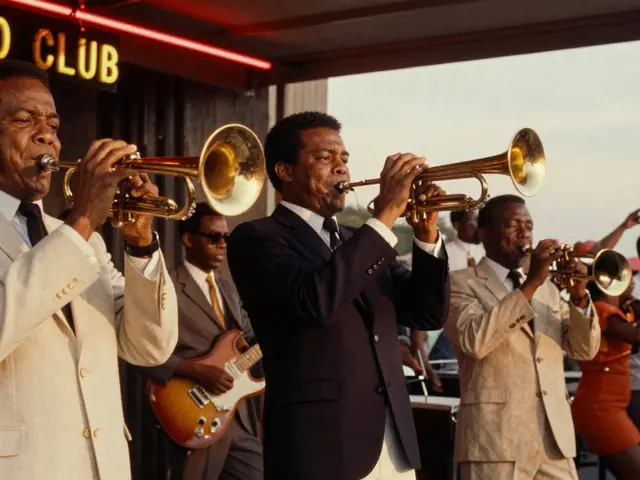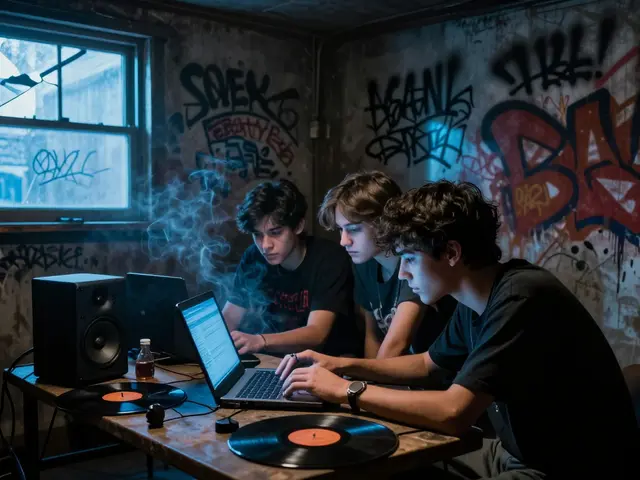Pop music isn’t just catchy tunes and flashy dance moves anymore. It’s become a loudspeaker for feminism—and that’s not up for debate. I mean, if you look at the charts over the past decade, you’ll find songs screaming for self-worth, independence, and even pay equality. When Taylor Swift turns line-by-line breakup stories into power anthems or when Lizzo belts out about body love in front of millions, it’s not just entertainment. It’s a cultural shift happening in real time.
These changes didn’t drop overnight. Remember the early 2000s, when girl groups would sing about breakups, but the lyrics usually tiptoed around the guys? Fast forward to now, and you’ve got artists openly calling out double standards, taking control of their images, and making sure everyone—no matter their gender or background—has a seat at the table. You don’t need to be a pop fanatic to spot the difference.
So why should you care? Because these artists aren’t just changing music, they’re changing conversations at dinner tables, school hallways, and boardrooms. The next time you hear a hit song pushing back against stereotypes, know that it’s doing a lot more than just filling the silence on your way to work.
- Pop Music’s Feminist Shift: From Madonna to Today
- Lyrics That Refuse to Stay Quiet
- More Than the Spotlight: Women Behind the Scenes
- Not Just Fans: The Impact on Listeners
- Barriers and Backlash: What Still Needs Work
Pop Music’s Feminist Shift: From Madonna to Today
If you’re tracking the rise of feminism in pop music, you have to start with Madonna. Back in the '80s, she ticked off parents and shocked the public—not because she was simply provocative, but because she owned her sexuality and called the shots on her image. She proved you didn’t have to wait for approval from the suits in the boardroom to be a woman in charge.
Fast forward to the late ‘90s and early 2000s, and you see Destiny’s Child making “Independent Women” a catchphrase. Britney Spears and Christina Aguilera start pushing back against the industry's double standards, even when the media tried to box them in as good girls or rebels. These artists opened doors just by being outspoken and unapologetic, even if they took hits in the press for it.
By the time Beyoncé dropped “***Flawless” in 2013, sampling Chimamanda Ngozi Adichie’s talk about gender, it wasn’t just about catchy hooks—it was about sparking worldwide debates. Beyoncé isn’t just performing; she’s pushing the needle and putting feminist messages right at the center of pop culture.
Now take a look at current stars like Billie Eilish, who made baggy clothes her trademark to dodge body-shaming, or Olivia Rodrigo, whose lyrics give young women a real voice instead of a sugarcoated script. There’s also a huge wave of women producers and songwriters—like Taylor Swift, who broke away from her old record label just to control her own music. You don’t have to look hard to see that women in pop are carving their own path in an industry that used to keep them in the background.
Experts have even pointed out that streaming services made it easier for these voices to break through. No longer do artists have to please just the big labels or radio gatekeepers. If they connect with fans directly—especially with a message that matters—there’s nothing stopping their rise. That’s real change, and it’s still picking up speed.
Lyrics That Refuse to Stay Quiet
Pop music lyrics have gotten a serious upgrade over the last few years. They’re way more direct, confident, and impossible to ignore. Instead of just singing about heartbreak or looking cute for someone else, today’s stars are using their words to push important messages about feminism—and people are listening.
Take Beyoncé’s “***Flawless,” for example. She literally samples Chimamanda Ngozi Adichie, a well-known feminist writer, right in the song. That’s not something you’d find in a standard pop hit even ten years ago. Then you’ve got Billie Eilish putting out tracks like “Your Power,” calling attention to abuse and power dynamics in the industry. When Lizzo shouts about loving yourself in “Good as Hell” or “Truth Hurts,” she’s aiming straight at the double standards women face.
Here are a few artists and some of their most outspoken songs that are shaping the conversation:
- Beyoncé – "Run the World (Girls)," "***Flawless"
- Billie Eilish – "Your Power," "Therefore I Am"
- Lizzo – "Good as Hell," "Truth Hurts"
- Taylor Swift – "The Man," "Look What You Made Me Do"
- Dua Lipa – "IDGAF," "New Rules"
What’s wild is how these lyrics go viral not just on the radio but all over TikTok, Instagram, and even in protest marches. If you want proof that these messages stick, just see how quickly lines like “Who run the world? Girls!” catch on across generations.
| Artist | Song | Year Released | Feminist Theme |
|---|---|---|---|
| Beyoncé | ***Flawless | 2013 | Empowerment, equality |
| Taylor Swift | The Man | 2019 | Gender double standards |
| Lizzo | Good as Hell | 2016 | Self-love, body positivity |
| Billie Eilish | Your Power | 2021 | Consent, abuse of power |
| Dua Lipa | New Rules | 2017 | Independence, boundaries |
If you’re curious about how this stuff translates into real-life results, Billboard reported that over 60% of 2023’s top-streamed pop hits contained themes related to female empowerment or gender equality. That’s a huge shift compared to a decade ago, and it’s a solid sign the message is getting through.
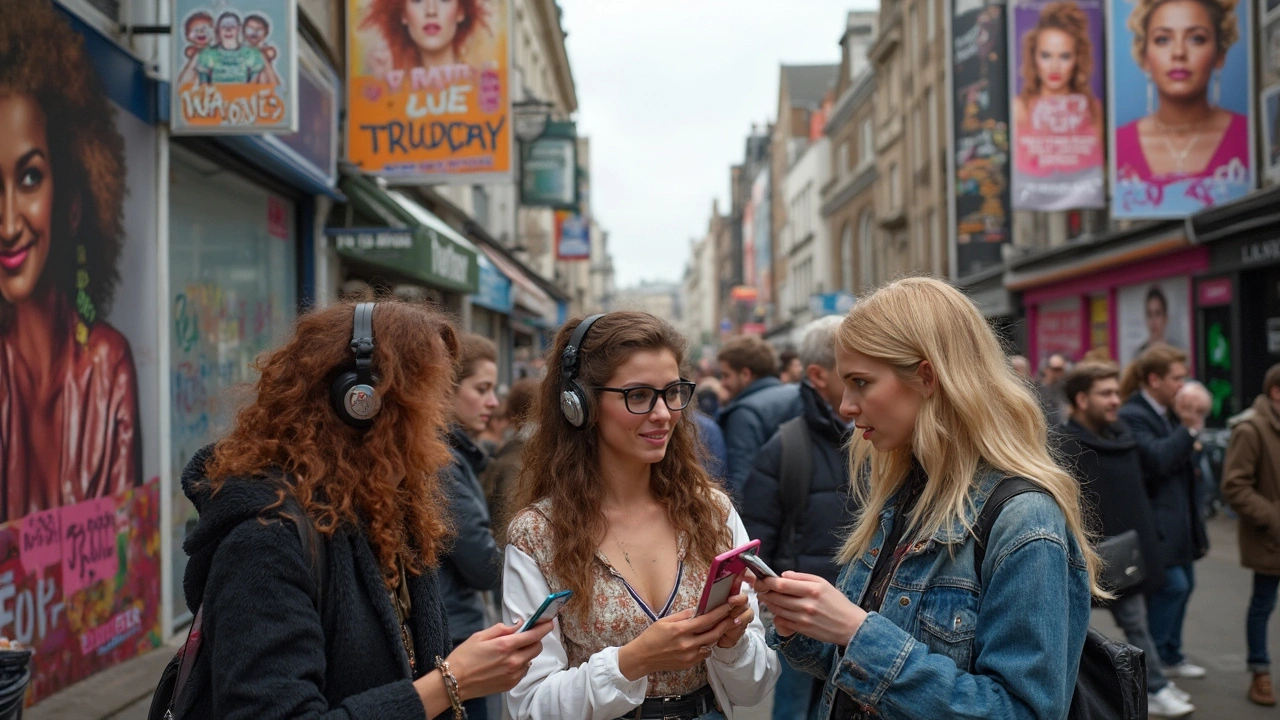
More Than the Spotlight: Women Behind the Scenes
When we talk about feminism in pop music, most people think about the singers up front, but there’s a whole crew of women behind every hit track. Songwriters like Julia Michaels and Victoria Monét are shaping the sound of the charts, even if you don’t see their names in neon. Julia Michaels, for example, co-wrote Justin Bieber’s "Sorry" and countless other radio smashes for Selena Gomez and Shawn Mendes. Victoria Monét helped pen some of Ariana Grande’s most empowering tracks.
Producers are finally getting some of the spotlight too. Take WondaGurl—a Canadian producer who’s worked with big names like Drake, Travis Scott, and Kanye West. Her beats have changed what’s possible for women in a space that’s usually dominated by guys. She started producing when she was just 15, and now she’s a Grammy winner.
Let’s talk about business: Sylvia Rhone, the first African-American woman to head a major record label, has led Epic Records and helped launch careers for artists like Megan Thee Stallion. She’s proof that women aren’t just writing or singing—they’re making the decisions that shape what reaches your playlist.
- Women behind the scenes push for equal pay, better work hours, and creative control.
- Groups like She Is The Music and Women In Music offer networking, mentorship, and training to help new talent move up in the industry.
- Spotify’s 2023 "Equal" campaign put women producers and songwriters front and center on global playlists, giving them the audience they deserve.
If you want to support these trailblazers, follow them, stream their work, and check out credits for your favorite tracks. Every play, like, or share counts—it tells the industry that fans want more women in all parts of pop music, not just holding the mic.
Not Just Fans: The Impact on Listeners
Pop music does more than get stuck in your head—it actually changes minds. When artists like Beyoncé drop songs like "***Flawless," it’s not just about catchy hooks. Fans are soaking up messages about self-worth, equality, and standing up for personal rights. Numbers back this up. In 2020, Spotify reported a huge jump in playlists labeled “girl power” and “empowerment,” showing that listeners are choosing songs to boost confidence and motivation.
Teens and young adults are especially tuned in. A study by Common Sense Media in 2023 found over 60% of young listeners said that songs by women talking openly about body image and equality made them rethink the way they felt about themselves. This isn’t just good for self-esteem; it challenges old ideas about gender and who gets to speak up.
The ripple effect doesn’t stop at self-confidence. Fans are starting conversations at home, in classrooms, and online about issues that used to be swept under the rug. Lyrics from pop songs are turning up in TikTok videos, on shirts, and even rally signs. So, pop music fans are not just passive listeners—they’re spreading feminist ideas to their friends and family without even realizing it.
"Pop culture is one of the most powerful vehicles for change. It’s easier for people to sing about feminism before they can talk about it," says Jessica Bennett, gender editor at The New York Times.
Social media has supercharged this trend. A single tweet by Billie Eilish about body shaming started more conversations than any school assembly ever could. If you’re wondering whether pop music can actually change something in the real world, just look at how many people are using their favorite tracks to stand up for equality—sometimes without ever calling themselves activists.
So, next time you sing along to Lizzo or Olivia Rodrigo, remember you’re not just enjoying a pop music hit. You’re part of a bigger movement. And who knows—maybe your playlist is helping change what’s considered normal in the world around you.
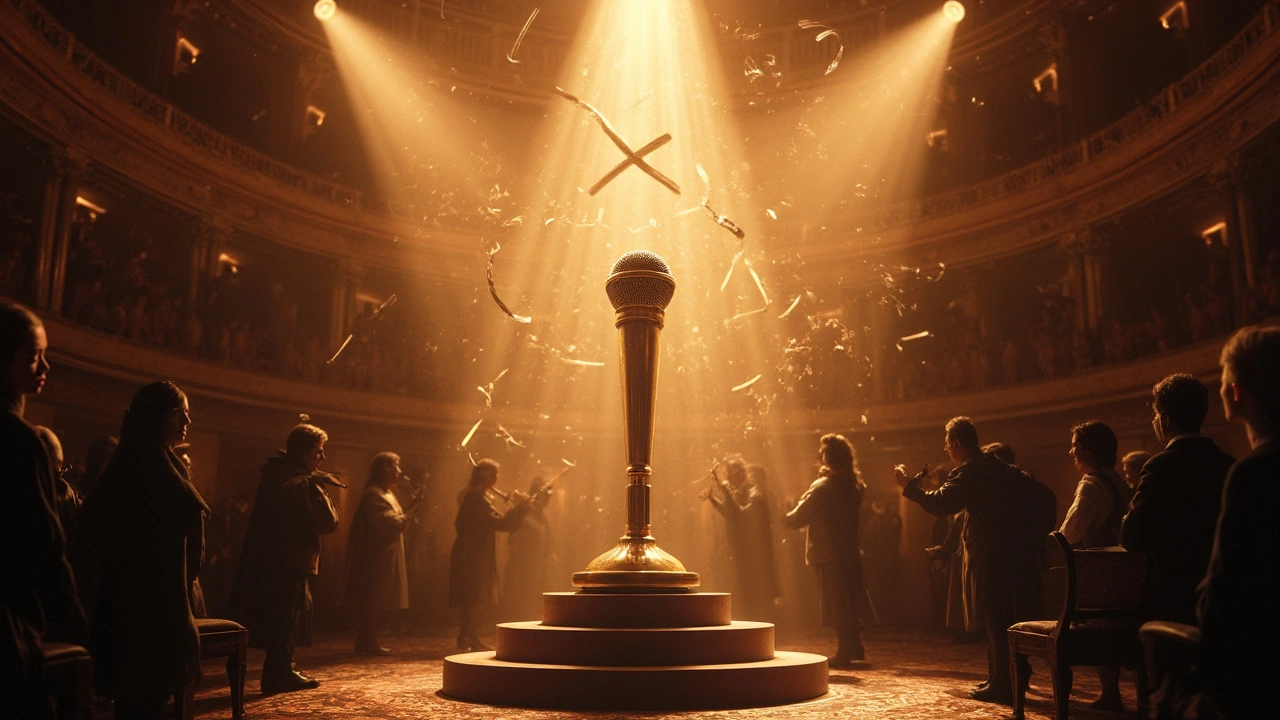
Barriers and Backlash: What Still Needs Work
No matter how loud and proud artists get, the battle for real gender equality in pop music is still far from over. Sure, Beyoncé and Dua Lipa are packing arenas, but look behind the scenes and you’ll spot the cracks. For every big win, there’s plenty of pushback and old habits that won’t die quietly.
Let’s talk about the numbers first. Women are still way underrepresented, especially in the technical and leadership spots. Here’s a look at how things shake out based on stats gathered from the USC Annenberg Inclusion Initiative in 2024:
| Role | Percentage of Women (2023) |
|---|---|
| Top 100 Pop Song Artists | 35% |
| Songwriters | 16% |
| Producers | 3% |
Kind of wild, right? You might hear a lot of female voices out front, but very few are calling the shots behind closed doors. That lack of power translates to less influence over what messages get out, and who gets paid.
And then there’s backlash. Every time a star drops a song with a feminist message, the internet seems to explode. Just ask Billie Eilish, who got slammed for speaking up about double standards in her lyrics and interviews. Sometimes, the haters show up in comment sections. Other times, it’s grown men with big platforms joking about turning off the radio if a song is “too political.” Even labels have pressured artists to “tone it down” so they don’t lose mainstream appeal.
If you’re in the industry, dealing with haters and trolls online can easily become a job in itself. Some tips for artists trying to break through the noise:
- Build a support network—other artists, trusted team members, and true fans who can help push back when critics pile on.
- Use social media to share your own story, not just the headline drama.
- Don’t be afraid to call out industry practices that aren’t working. Change doesn’t happen if nobody says anything.
- Collaborate. When well-known artists work with up-and-coming female producers and writers, it opens more doors all around.
The bottom line? The rise of feminism in pop music is real, but it isn’t finished. As long as important seats are still mostly filled by men and pushback keeps coming, there’s real work to do. But with more voices backing each other up, that balance is starting to tilt.

